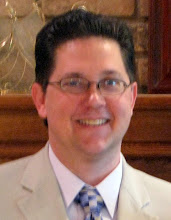What do you do?
Well, if you're honest and like to obey the law, you either (1) ask permission or (2)you go get another idea. Otherwise, you write Russet Noon. (I started to give them a link, then decided not.)
Here's some words from the press release of the publisher (whose lawyer should know better):
"When fictional characters become such an intricate part of the popular psyche, as is the case with the Twilight Saga, legal boundaries become blurred, and copyright laws become increasingly difficult to define. This is especially the case when actual cities like Forks and Volterra are used as the novel's settings. Such settings are not copyrightable, as they are considered public domain. Similarly, the Quileute Nation is also not copyrightable, and neither are vampire or werewolf legends. Copyright laws protect writers from unauthorized reproductions of their work, but such reproductions only include verbatim copying. Characters are only copyrightable if their creator draws them or hires an artist to draw them. Stephenie Meyer herself borrowed a great deal from previous works dealing with these mythologies."
This isn't a hard call at all. The claim that because Meyers' writing is *popular*, any person can make fanfic and publish it for a profit is laughable on its face. That's tantamount to saying there is no copyright protection at all for characters, situations or fictional events.
I doubt that any judge will take more than three heartbeats to reject the claim that *popularity* blurs the boundaries of copyright law. Popularity actually acts in the favor of the copyright holder, since it raises the likelihood that the infringing work is motivated by profit. To demonstrate: if anyone wanted to get inspired and write a Vlad Bumbleblood, Hobbit Vampire fanfic novel, based upon my character, I think we could rule out profit as a primary motive.
Contrary to their publicity argument above, fictional characters are copyrightable to the degree that they are fixed in a medium (not necessarily a visual medium), and recognizable (rather than stock characters). Like, um, having names and descriptions and unique personalities. Existing locations may be public domain, but their use may not. For example, if there is a storm drain in a certain Dallas city block that I say has a nest of giant tap-dancing spiders under it, the Dallas storm drain is public domain, but the spiders are mine. Even if they are "stock" giant tap-dancing spiders.
Meyers has put together a universe based from certain legends, made certain personal assumptions and changes to those legends (sparkly vampires out during the daylight in the Pacific northwest), and populated it with recognizable characters. Not only that: those characters are in specific situations; this book is a sequel based entirely on those situations for those characters; this book mentions the past events invented by Meyers for those characters, etc.
I just wonder if the real motive behind this is to create massive publicity for something else by "Jacob and Bella". Or if they're just that ignorant of the law.
Apparently it's been withdrawn, but we'll see where it ends up. Remember that by definition that this is a "derivative work" based upon Meyers' series, so she actually owns the rights to this novel as well.
Oh, and read this humorous take over at prlog, which makes fun of both the authors and the screaming zombie Twilight hordes.

5 comments:
Interesting opinion article, but it's not saying anything different from what's already being said.
A little more originality and "thinking outside the box" maybe?
Sorry Glorianna, if everyone from professional writers to average fans are telling you the same thing, maybe you should heed them.
Welcome, Lady Sybilla and Jay!
Sorry I can't be more "original", but in analyzing a point of law or a business event, you get points for accuracy, not originality.
Judges are notorious for following something called "precedents", which basically means doing the same thing that the earlier guys have done. In order for the Russet Noon folks to win, they can't just ignore or make up law, they have to fit themselves into the real legal loopholes that already exist - things like "fair use" or "parody". For definitions, see publaw.
And, based upon that page, here's an analysis you probably haven't seen:
The RN authors have unfortunately closed off, in their public statements, their one promising defense: by publicly claiming that the novel is an homage to Meyer's Twilight series, they have foreclosed their ability to claim it as parody of the series.
If they had started their publicity from the parody viewpoint, "We're fans, but Meyer is such a klutzy writer that ANYONE could write a better sequel," then they could have turned the legal question on its ear, and the legality of RN's publication would turn on its aesthetic and artistic merits, not on having to overturn settled law.
Of course, they'd also have to include a few things into the story that allow an average reader to differentiate between the novel as a parody versus a serious competing work. This could be the equivalent of ten or a hundred "easter eggs" spread through the novel.
Anyway, good luck with that.
A call for originality from someone who has used someone else's work as the basis for hers is more than a little ironic.
I'd love to see it, though.
Thanks for this very useful analysis--I shall add a link to it to my own blog post about the Russet Noon carnival.
Post a Comment